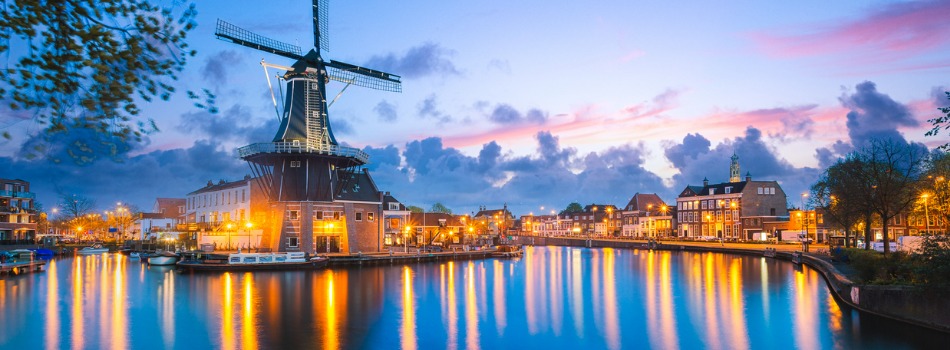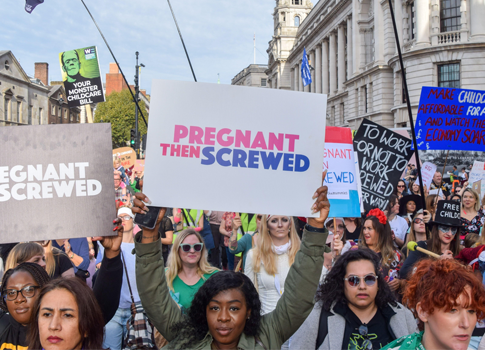The city of Haarlem, in the Netherlands, made international headlines as the first city in the world to introduce a ban on OOH adverts for meat products. The ban on advertising meat products is part of a larger policy prohibiting adverts for environmentally damaging goods and services – including holiday flights, fossil fuels, and cars that run on fossil fuels. From 2024, when all current advertising contracts will have come to an end, prohibited adverts will no longer be allowed on Haarlem’s buses, shelters and screens in public spaces. The motion was drafted by GroenLinks, a green, left-wing party who currently hold the highest number of seats in Haarlem’s municipal government.
A controversial one-off, or a sign of bigger changes to come?
The ban on advertising meat products has proven to be the most controversial element of the policy. This is no doubt, in part, because the Netherlands is the largest meat exporter in the EU. Unfortunately, the negative environmental impact of the meat industry is indisputable: livestock produce large quantities of methane; CO2-absorbing forests are felled for grazing land; and nitrogen-rich fertilizers used for growing animal feed can contribute to air and water pollution, plus ozone depletion.
The controversy around the meat products ban is also the result of its novelty. In recent years, the Netherlands has been leading the charge on restricting adverts for environmental reasons. However, what makes Haarlem unique is that the city’s policy broadly targets goods and services deemed environmentally damaging, rather than exclusively focusing on fossil fuels. Haarlem’s ban was preceded by legislation in Amsterdam and The Hague, which have both banned adverts from fossil fuel and aviation companies. Amsterdam was the first city in the world to do so: from May 2021, adverts for fossil-fuelled vehicles and flights have been banned from the city’s centre and subway stations. Similarly, as of August 2022, France passed a new climate law making them the first European country to ban adverts for fossil fuels. The legislation encompasses advertising for all energy products related to fossil fuels, plus energy from the combustion of coal mining and hydrogen-containing carbons. Whilst this does impact the advertising of certain consumer goods, such as petrol cars, the ban does not include meat products – much like the legislation in Amsterdam and The Hague.
Will the UK follow the lead of their European neighbours?
Reading this, you might be wondering, if, or perhaps when, the UK will follow suit. Currently, the Advertising Standards Authority (ASA) has rules that relate to “social responsibility” and environmental claims in adverts. These rules include not misleading consumers about the environmental benefits of a product; not suggesting any claims currently being disputed by scientists are in fact universally accepted; and not encouraging or condoning behaviour such as littering, producing excessive waste, or failing to recycle. However, there is no ban on environmentally damaging goods and services being advertised, as long as they obey these rules. Transport for London has its own advertising policy, in addition to the ASA rules, which includes bans on advertising food and drinks which are high in fat, salt and/or sugar (“HFSS” products), and adverts which are deemed “likely to create body confidence issues particularly among young people”. Despite TfL intervening on these social issues, there is currently no similar regulations relating to the climate crisis.
On a grassroots level, demand for greater restrictions does appear to be growing across the UK. At the 2020 Party Conference, Members of The Green Party of England and Wales, backed a motion which called for the end of advertising “high carbon” goods and services. The motion, which became official Party policy, set out a plan to eventually phase out adverts including those for SUVs and long-haul flights. From the beginning of 2021, North Somerset, Norwich, and Liverpool Councils have all passed motions with the intention of eventually implementing similar bans. Exactly what goods and services these Councils intend to ban is still unclear.
What could the ban mean for you?
Time will tell whether Haarlem’s council are trailblazers, or if they will remain outliers. However, according to Tim Sapsford, the Managing Director of Posterscope, the introduction of a ban as radical as Haarlem’s is unlikely – despite increasing concern for the environment amongst both businesses and consumers. In his words:
“The move by Haarlem is an interesting one, but not an initiative I would expect to see become the norm here. Councils generate a significant proportion of their revenues through OOH advertising, which they can then plough back into the community, so to start banning whole categories feels counter intuitive.”
“There is increasing pressure to restrict advertising on ‘high carbon’ industries, and not just in OOH. However, any move in the UK would need to be carefully phased, so there should be no need for short-term or even medium concern about this. Ultimately, advertising will always seek to reflect consumers concerns, and businesses will adapt over time as they always have.”
For more information contact our Broadcast Team today.






